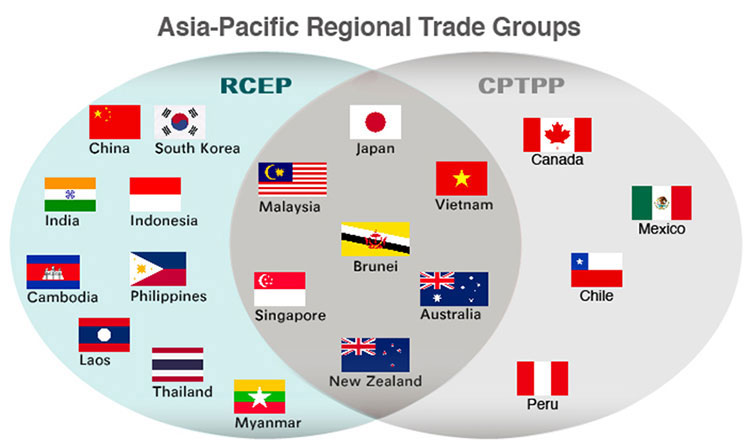RCEP is triumph of multilateralism, free trade: Cambodian officials, experts
The Regional Comprehensive Economic Partnership (RCEP) represents a triumph of multilateralism and free trade, and it will become a driving force for regional and global economic growth, Cambodian officials and scholars said.
Signed on Nov. 15, 2020, the RCEP is a mega trade deal between 10 ASEAN member states (Brunei, Cambodia, Indonesia, Laos, Malaysia, Myanmar, the Philippines, Singapore, Thailand and Vietnam) and its FTA partners of China, Japan, South Korea, Australia and New Zealand.
The trade deal is expected to enter into force on Jan. 1, 2022.
“This regional trade deal is a victory of multilateralism and free trade,” government chief spokesperson Phay Siphan told Xinhua. “It will become the core foundation for trade and investment in the region, further expand regional value chains and create more employment and market opportunities for peoples and businesses in the region.”
For Cambodia, he said the kingdom has projected that RCEP will boost its gross domestic product (GDP) by 2 percent, exports by 7.3 percent and investment by 23.4 percent.
“We have no doubt that the pact will help support our economic growth by stimulating new private investments and providing greater market access to Cambodian products,” Siphan said.
Covering a region with a combined GDP of 26.2 trillion U.S. dollars, or about 30 percent of global GDP, the RCEP agreement is an unprecedented, modern, comprehensive, high-quality and reciprocal mega-regional trading arrangement that accommodates the broadest possible interests, conditions and priorities of different countries.
Once in effect, the deal will eliminate tariffs on as much as 90 percent of goods traded between its signatories over the next 20 years.
Kin Phea, director-general of the International Relations Institute at the Royal Academy of Cambodia, said RCEP will play a very important role in regional and global economic recovery.
“RCEP countries will greatly benefit from this important trade deal and can diversify their productions and markets,” he told Xinhua. “RCEP will be a driving force of foreign direct investment to all RCEP countries, and the world’s economy will also be positively impacted by this agreement.”
Joseph Matthews, a senior professor at the BELTEI International University in Phnom Penh, said there is no doubt that RCEP is the world’s largest free trade agreement and will be a driving force in the post-COVID-19 era.
“RCEP is a victory for multilateralism and defeat of unilateralism,” he said.
Matthews said the pact will create huge opportunities for countries such as Cambodia, Laos, Myanmar, and Vietnam to market their products and commodities in such a big market and multiply their profits and gains.
Thong Mengdavid, a research fellow at the Phnom Penh-based Asian Vision Institute, said RCEP enables the reduction of 90 percent of regional trade tariff and non-tariff barriers, which greatly enhance the flows of goods and services and deepen economic links and increase regional competitiveness.
“RCEP offers opportunities for regional countries to defend trade liberalization and promote economic cooperation, which are crucial to the post-COVID-19 recovery, and it is a strategic accomplishment for ASEAN Economic Community,” he told Xinhua.
“The success story of RCEP could serve as a model and be a hope for cross-regional economic cooperation and connectivity in the post-COVID-19 era,” Mengdavid said.
Source: https://www.khmertimeskh.com/50967133/rcep-is-triumph-of-multilateralism-free-trade-cambodian-officials-experts-2/


 English
English




